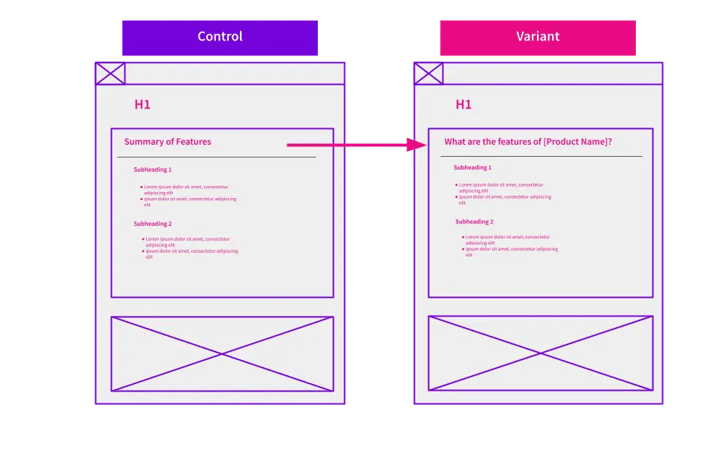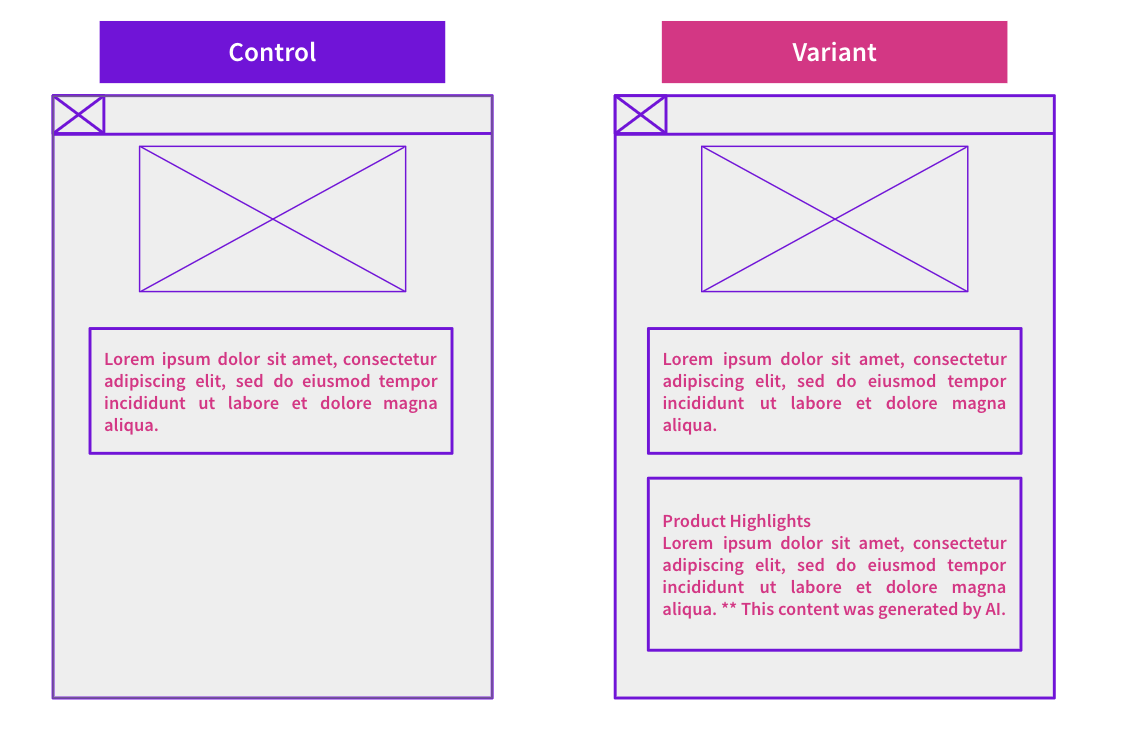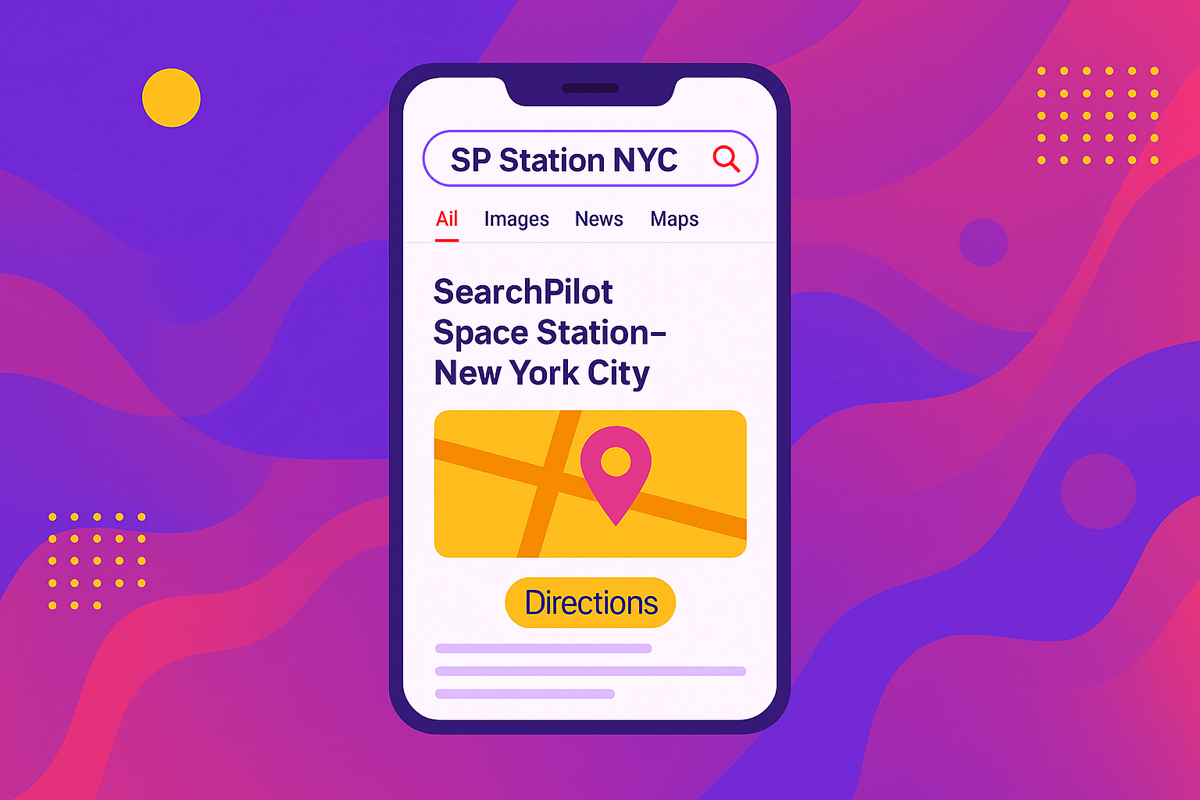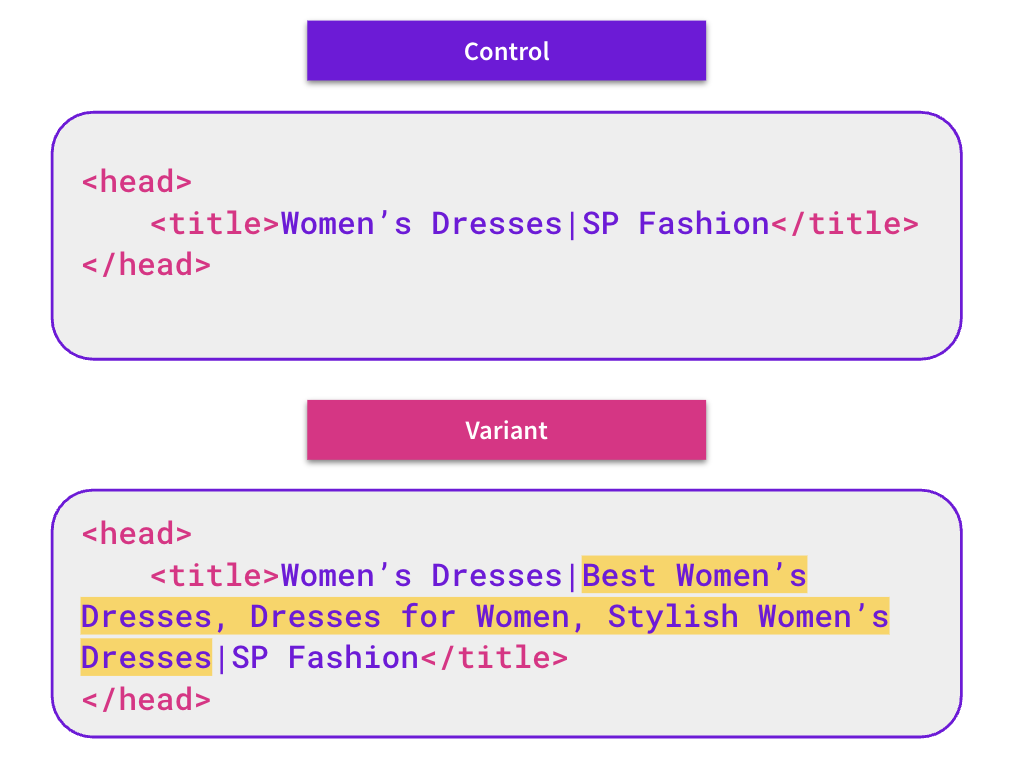Start here: how our SEO split tests work
If you aren't familiar with the fundamentals of how we run controlled SEO experiments that form the basis of all our case studies, then you might find it useful to start by reading the explanation at the end of this article before digesting the details of the case study below. If you'd like to get a new case study by email every two weeks, just enter your email address here.
For this week’s #SPQUIZ, we asked our followers whether they thought that we could improve organic traffic by updating the H2’s of a customer’s product pages to include the product name and be rephrased into a question.
Here is what our followers thought:
Twitter:
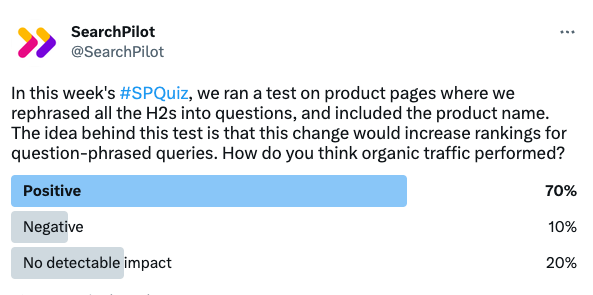
70% of our Twitter followers thought this change would have a positive impact on organic traffic while 20% thought it would have no detectable impact.
Linkedin:
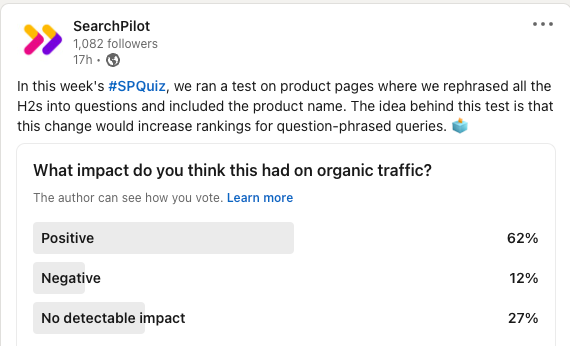
Similar to our twitter users, more than half of our followers on LinkedIn thought this change would have a positive impact on organic traffic while 27% thought it would have no detectable impact.
So did our followers get it right? Read on to find out!
The Case Study
Optimizing header tags is one of the oldest SEO strategies used to improve relevance to important keywords.While Google has not stated that they are explicitly a ranking factor, Headers are still vital as they aid user experience and provide the context for the content on a page. Just as a reader skims through content, Google also utilizes header tags to digest the information on a page, which can indirectly lead in ranking improvements or ranking for new keywords. This is explained by Google’s John Mueller during the Webmaster Hangout in 2020.
H1’s are usually the main focus in header tag tests, but for this week’s case study we decided to experiment with optimizing H2 to see their impact on increasing organic traffic. We took the H2s on a customer’s product page, added in the product name, and rephrased them into a question.
The hypothesis behind this test was that since H2 tags could be utilized in strengthening rankings for related keywords and question-phrased queries were a big driver of organic traffic for the customer, this change would have a positive impact by better aligning the H2s with these queries and targeting a broader range of keywords.
Here is a comparison of our control and variant pages:
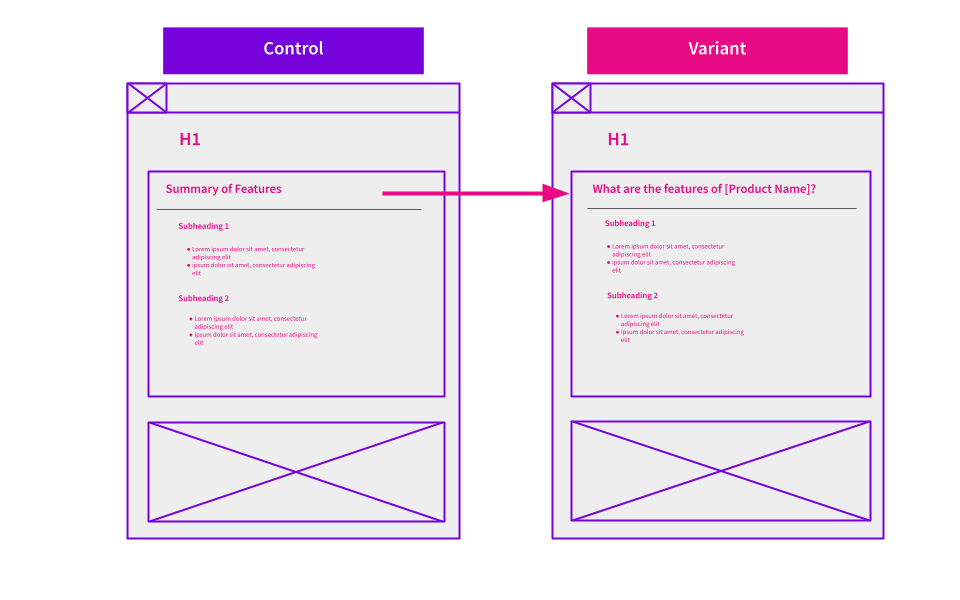
In the image above, you can see that the H2 was changed from “Summary of Features” to “What are the Features of [Product Name]?” specifying the actual product that the content below references.
So how did this test perform?
This chart shows the impact this test had on organic sessions:
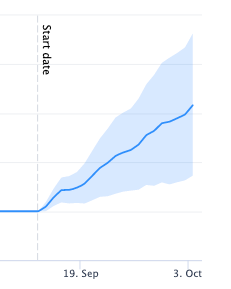
This test ended with a positive outcome, with approximately a 12% uplift in organic traffic after running for 20 days. Running this test demonstrated the impact that H2s can still have on your organic traffic, and that targeting specific keyword phrasing can still be valuable. It helps Google better understand the content, which can impact organic traffic positively because it can use these added keywords to serve user search queries better.
The customer was able to have this change deployed globally by using SearchPilot’s meta-CMS functionality, which allowed them to benefit from the optimized H2’s immediately without having to wait on engineering resources for what could be considered a relatively simple change to implement.
To receive more insights from our testing, sign up for our case study mailing list, and please feel free to get in touch if you want to learn more about this test or our split-testing platform.
How our SEO split tests work
The most important thing to know is that our case studies are based on controlled experiments with control and variant pages:
- By detecting changes in performance of the variant pages compared to the control, we know that the measured effect was not caused by seasonality, sitewide changes, Google algorithm updates, competitor changes, or any other external impact.
- The statistical analysis compares the actual outcome to a forecast, and comes with a confidence interval so we know how certain we are the effect is real.
- We measure the impact on organic traffic in order to capture changes to rankings and/or changes to clickthrough rate (more here).
Read more about how SEO testing works or get a demo of the SearchPilot platform.
